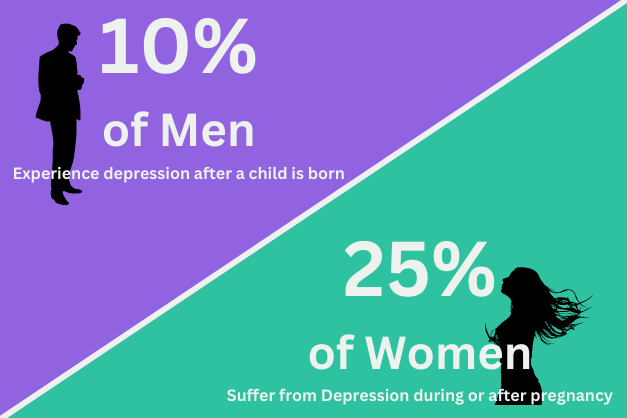Do I have the ‘Baby Blues’?

‘I’d like to understand some of the rollercoaster of postnatal emotions that can be experienced after having a baby – can you please help?’
Source: http://www.pada.nz/
The birth of a baby is a life changing event bringing with it a roller coaster of emotions. Most notably are overwhelming feelings of love, excitement, and exhilaration. How incredible to have made and grown this tiny wee human and finally getting to meet him or her!
Baby Blues – Emotions for some new parents don’t always remain so upbeat. It is common, (around 80%) for the birthing parent to experience what is called ‘Baby blues’, or sometimes referred to ‘three-day blues’. This can occur in the first 2 weeks after baby is born and is a combination of a few factors: a sudden drop of those euphoric hormones produced during labour, physical changes as the mature milk comes in, broken sleep and the feelings of overwhelming responsibility. Acknowledgement that this is normal is important, and good practical and emotional support will help get through this.
Postnatal Depression – Less common but still very prevalent is post-natal depression (PND). If a new parent is having feelings of helplessness, is overanxious about their baby, having trouble sleeping, has experienced depression or anxiety during pregnancy, having feelings of guilt, is tearful and feels alone and unsupported, these could be indicators of PND. Commonly, family and friends will pick up this up first. Although feeling a bit down or having the odd off day can be normal with all the changes a newborn baby brings, if these feelings are happening a lot, it could be postnatal depression.
As a partner, what can you do? Firstly, ask how they’re feeling. As simple as it sounds, it can be powerful and offers an opportunity to off-load and express what is happening. Physical help can be great too; help around the house or taking baby for a walk to allow the partner some time-out. Organise a babysitter – you can have a few hours at a café or at the beach together and be back home in time for the next feed. Suggest and organise some professional help, resources below.
For the parent experiencing PND? Accept that you have PND. As difficult as this might be, acceptance is the key to moving forward. Also accept that it is ok, you’re not a freak, and it doesn’t mean you’re a bad parent, it just means you’re having some challenges that you might need extra support and help with. Be realistic, both with your personal expectations and the need for help. Join support groups, connect with your coffee group, and seek professional help.
Dad’s and Partners can get Postnatal Depression too – this period of time is a huge life adjustment for both of you. There can be a lot of pressure on partners returning to work, financial stressors, broken sleep, supporting their partner who may be experiencing PND, and often these are suffered in silence. Accepting that you’re feeling this way and talking about it is a key start to recovery. No new parent should feel embarrassed or ashamed about feeling low or depressed or feel that they can’t talk about it. Peer support in the right environment can be of great benefit, as is talking to your employer, partner, and doctor.
- PADA www.pada.org.nz
- Health Line 0800 611 116
- Plunket Whānau Āwhina line 0800 933 922
- Father and Child https://fatherandchild.org.nz/
- Matresence Ted Talk https://www.youtube.com/watch?reload=9&v=jOsX_HnJtHU
